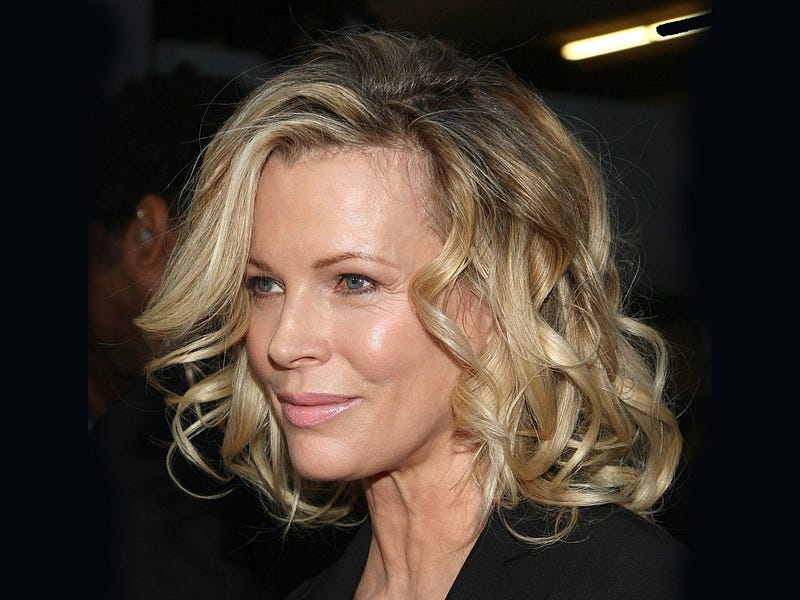Sound Off: Using My Transgender Voice
What could be the nature of your primary difficulty, you silly goose?


In the movie “Full Metal Jacket,” Gunnery Sergeant Hartman unleashes a fusillade of profanity, metaphor, insult, and nicknames upon a squad of Marine recruits with a vitriol so palpable, it may have congealed as a cloud of green haze that remains over the movie set to this day. Imagine, however, if instead of casting R. Lee Ermey as Gunnery Sergeant Hartman, Stanley Kubrick had cast Kim Basinger as the drill instructor.
Basinger would have been slightly younger, probably a bit shorter, and almost certainly much less effective in the part. As a character, Gunnery Sergeant Hartman must be forceful, abrasive, and unflinching. Basinger could not have played the part the way it needed to be played.
To be clear, I love Kim Basinger — even today, she maintains a presence at once aloof and seductive — which is precisely why she would have failed as Gunnery Sergeant Hartman. (And to be fair, Ermey probably would have been terrible as Vicki in “The Marrying Man.”)
External presentation in the form of clothing, makeup, and how we carry ourselves is only one component of how we are perceived by others. The most critical aspect of social roles, including gender roles, is behavior — in particular, the voice.
As I continue to transition gender, I find using my authentic voice the most difficult change to make. My problem is not lack of skill — after a few months of voice lessons (hi, Alison!), I can control the brightness and pitch of my voice with a fair degree of artistry. Yet I lack the confidence to project Amethysta to the world in a way that expects the world to accept her, even with friends and family.
Voice as an extension of personality
The reason I find using my authentic voice difficult is the same reason Kim Basinger would play a horrible Gunnery Sergeant Hartman. Our vocabulary, diction, cadence, and inflection portray who we are and how we feel inside in a manner difficult to counterfeit. The result is more than a sound bite — our voice is truly an extension of our personality.
By comparison, clothes and makeup are secondary to voice. If I need to tone down my femininity, I could change my clothes to something gender-neutral, remove my lipstick, and cover my hair. I cannot, however, express myself as Amethysta in a voice suitable to Gunnery Sergeant Hartman. To do so is not to be Amethysta, whose personality is softer, kinder, more vulnerable (and more purple) than Gunnery Sergeant Hartman.
The issue I face is having lived as not-Amethysta for 52 years. My personality is already out there as curmudgeonly, impatient, and closed off. I settled into a role with the rest of world — one not exactly comfortable, but worked to mitigate enough discomfort in an uneasily cautious kind of way. Using a new mode of expression feels as if I force the world around me to accept Amethysta in a way deeper and more permanent than wearing a skirt.
Speaking vs. communication
Make no mistake: I want the world to accept me as Amethysta. I want the world to see me as the woman I know I am inside. Otherwise, I certainly would not choose to put myself through gender transition: the second puberty of hormone therapy; the pain and expense of laser hair removal and electrolysis; the awkwardness of voice lessons (sorry, Alison!).
In addition to wanting to be perceived as a woman, I enjoy doing voices and impressions. I appear to have a natural aptitude for hearing the timbre of voices and changing mine to match. I make up voices for characters in fiction, for my pets, the plants — hell, for inanimate objects.
What, then, is my major malfunction, as Gunnery Sergeant Hartman might put it?
The nature of my primary difficulty is the distinction between speaking and communicating. Speaking is simply saying words. But those words aren’t required to have context or meaning, they aren’t required to follow a formal grammar, and they could be spoken into a vacuum.
Communicating, however, implies building and maintaining a relationship. The words must have context and meaning, they must make sense, and they must be spoken with a desire to impart information to another person in a manner in which the other person is willing to receive it.
One of the most obvious “tells” of a transgender person is not using voice in a manner consistent with society’s gender roles. We are painfully self-conscious of our voices because communication as our preferred gender requires trusting other people in a relationship. We must hope the world is willing to receive our communication and hope we will not be mocked for our methods.
Where we falter is keeping up the necessary hope. After a lifetime of hiding ourselves, learning to trust other people and change the relationship with them is almost beyond the ken of many transgender people.
Choosing to believe in hope
In a recent article, I wrote that the final step in my journey to Amethysta is to choose to believe it. Perhaps more accurately, to choose to be Amethysta.

I must let go of the pain, the shame, the rejection, the humiliation — everything I felt the world gave me, every component of the stunted personality I created to prevent having to feel who I am. I must let go of the curmudgeonly personality that served (however poorly) to get me to this stage of life.
Instead, I must build a new relationship — with myself and with others. I must hope the rest of the world is willing to accept that new relationship, but I fear it will not.
I fear my family and friends will not hear me as Amethysta, and I will become foreign to them. I fear the rest of the world will not allow me to shed my former personality, that it will use my clumsy attempts at communication as new fodder for a fresh herd of shame and rejection.
My fear acts as a barrier to using my authentic voice comfortably. I can record my voice — I even recorded a video with my voice. But looking into somebody’s eyes as I communicate with my authentic voice is remarkably difficult right now. It means changing relationships that may have existed for decades.
Basic Transgender Training
Perhaps what I need is Transgender Basic Training. I could join the Makeup Corps under the instruction of Gunnery Sergeant Hartman — played below by Kim Basinger:
Gunnery Sergeant Hartman: What’s your name, purple hair?
Private Herrick: Ma’am, Private Herrick, ma’am!
GSH: That’s silly! From now on, your name is Private Amethysta.
PA: Ma’am, yes, ma’am!
GSH: Are you wearing eye makeup, Private Amethysta?
PA: Ma’am, no, ma’am!
GSG: Well, why not? You might really bring out your eyes with a little eyeliner, some mascara?
PA: Ma’am, yes, ma’am!
GSH: Let me hear you meow, Private Amethysta.
PA: Ma’am, meow, ma’am!
GSH: I can’t hear you!
PA: MA’AM, MEOW, MA’AM!
GSH: Outstanding, Private Amethysta! I think we’ve finally found something that you do well. Heck, I may even allow you to serve as a woman in my beloved Makeup Corps.




